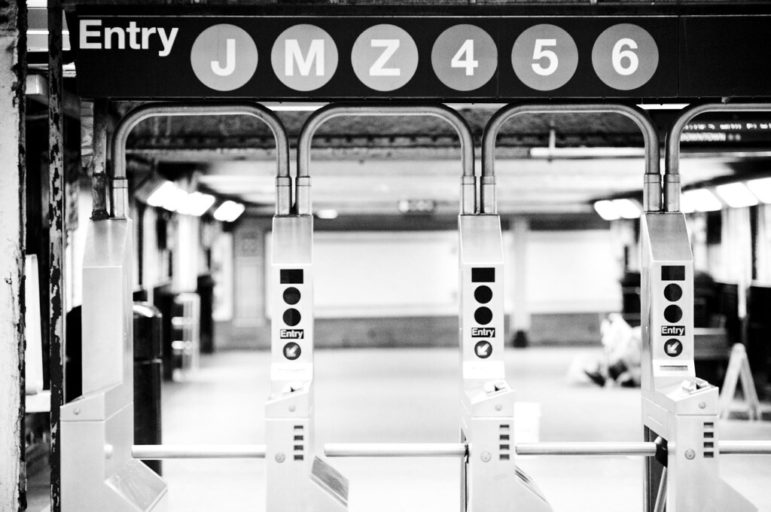
Giving formerly incarcerated people a meaningful opportunity to re-enter society is not only a moral obligation but it reduces recidivism and creates safer, more just and more vibrant communities. That’s why Governor Andrew Cuomo’s support on a lifetime ban from public transit for recidivist sex offenders is a bad idea.
As the New York Times reports, the City Council is considering a lifetime subway ban for those convicted of recidivist sex offenses. Governor Cuomo lent the proposal his support, urging the council to use “common sense” and implement the ban. But his idea of common sense is sorely misguided. Everyone has a right to public transportation. Everyone also has a right to a safe commute. These two rights are not in conflict with each other, and to pretend otherwise hurts us all.
Time and again, research has shown that laws restricting access to economic resources and social support, like mandatory bars to employment and public housing for people with criminal convictions, can actually increase the likelihood of re-offense, rather than promote public safety. Likewise, intensive policing of those who are reentering, as the Times reports the NYPD is already doing, increases criminal activity. Together, these policies keep already vulnerable people economically stagnant, cause homelessness and force family separation all while having an overall negative impact on community safety.
On the other hand, access to jobs, stable housing and social services promotes rehabilitation and dramatically reduces recidivism. If we focus on providing social services to those accused of sexual offenses, rather than criminalizing and segregating them, our subways would be genuinely safer.
Sex offense convictions already carry some of the most restrictive consequences of any criminal conviction. New York State law already prohibits many people on the sex offender registry from residing within 1,000 feet of a school, despite the law having no measureable effect on child safety – in fact the TimesEditorial Board called it “pointless.” This prohibition has caused numerous people to be illegally detained in prison past their release date because they are unable to secure compliant housing in a city where school zones cover almost the entire map. Once released, many are forced into one of the onlynine compliant homeless shelters in city, regardless of whether that is near family, support programs, or other resources that could be essential to successful reentry. Again, these restrictions fail to make us any safer while frustrating reentry and rehabilitation.
Like the school zone law, an all-out ban on access to public transportation would create enormous barriers to successful reentry and rehabilitation. Public transportation in New York City is an absolutely vital resource – we must consider it a basic right. It is necessary to access jobs, healthcare, social services and a social network. A ban on public transportation amounts to an exile from New York City. Without it, those who seek to re-join our city will undoubtedly be relegated to the margins, only increasing the likelihood of re-offense.
Furthermore, policing in the subway is already under scrutiny for targeting people of color ; the increased monitoring that would undoubtedly coincide with a public transit ban increases the risk that these disparities are perpetuated.
Rather than employing aggressive policing that targets individuals and draconian strategies that exclude our fellow New Yorkers participation in everyday life, public safety strategies should focus on addressing the root causes of unsafe behavior. For example, the city should increase access to mental health and substance abuse treatment and other treatment, which has been shown to reduce the likelihood of repeat sex offenses.
New York State has been a leader in the criminal justice reform movement, and the reform package included in our new budget promises to bring even more positive change. We have worked to reduce arrests and the inequality inherent in our justice system, and implemented measures to promote successful reentry and rehabilitation. Everyone deserves a safe commute, and we should invest public resources to protect that, but a law banning people with certain convictions from riding the subway is a step in the wrong direction.
Emily Ponder-Williams is a supervising attorney at Neighborhood Defender Service.









